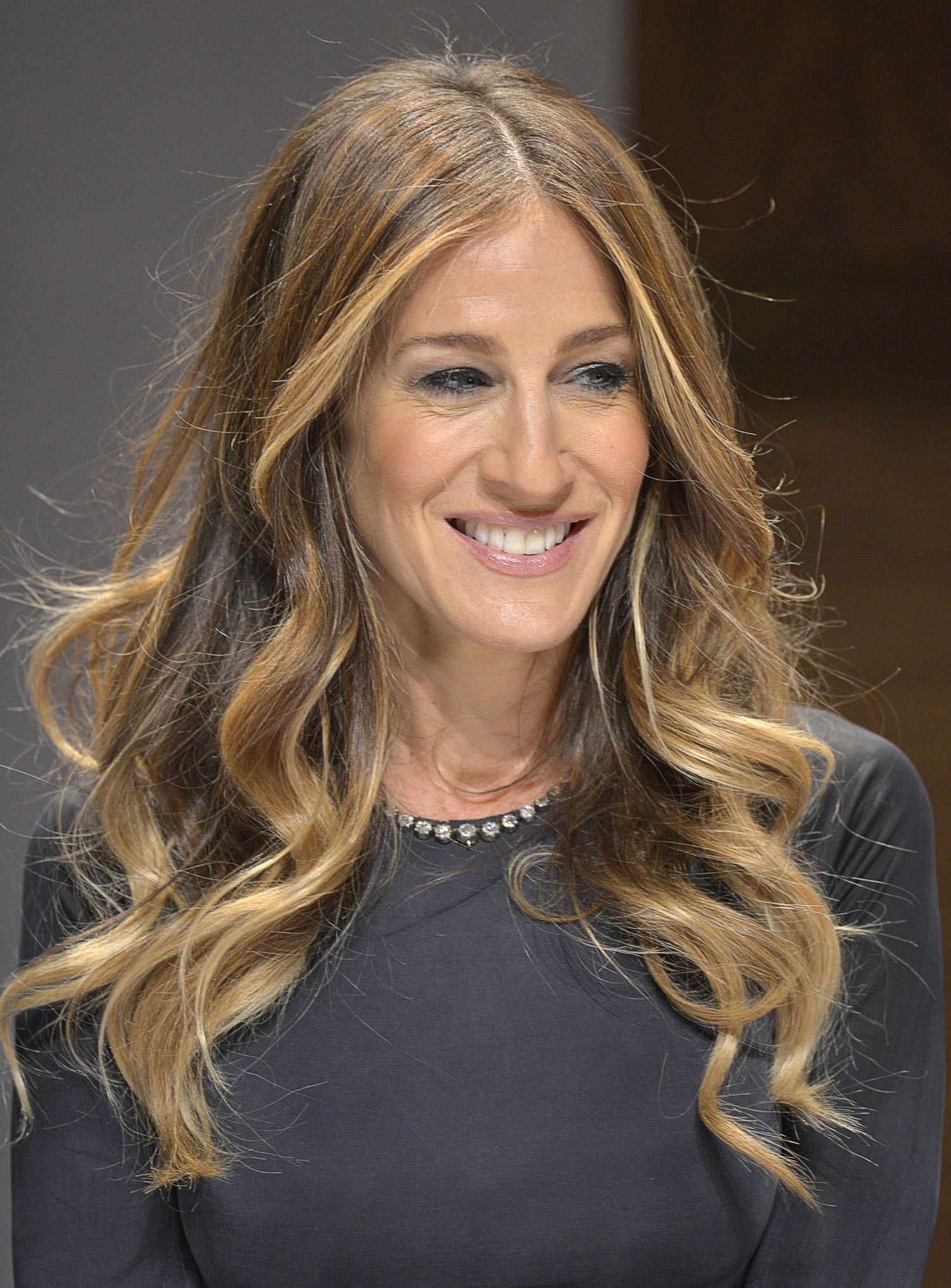
Turning 50 is a big deal for any person, and a bigger deal if that person is working in an industry that’s historically been unkind to women as they age. And it’s bigger still if that person has for most of her adult life been a standard-bearer for the hopes, fears, and insecurities of her age group.
Since Sex and the City began its run on HBO in 1998, Sarah Jessica Parker, who turns 50 today, has represented far more than herself. Her character Carrie Bradshaw’s refusal—at times principled, at times frustratingly flighty—to settle in the face of several comfortable options was a television milestone. It provided both solace and inspiration for American women, or at least coincided neatly with a period in which they came to turn away from early marriage and motherhood in favor of dating casually for longer. Parker-as-Bradshaw was, in each column she fictitiously wrote on camera in those lingering shots of an early-2000s laptop, a voice of a generation, and one that resounded far beyond what the Sex and the City writers might have initially intended.
Parker appeared on the cover of TIME in 2000, accompanied by her three castmates (Kim Cattrall, Kristin Davis, and Cynthia Nixon) and framed by the headline “Who Needs a Husband?” She was, by this point, an icon representing the challenges and joys of single life. (This conveniently elided that the then-35-year-old Parker had been married, for three years, to fellow actor Matthew Broderick.)
It’s that detail that has opened the door to her post-HBO years in public life, in which Parker has become something far more interesting, and complicated, than her character. To start with her most visible recent work, the two widely-derided Sex and the City movies, released in 2008 and 2010, aren’t perfect by a long shot, but they proved Parker to be a bankable movie actress (which is not nothing, not least because the phenomenon of “a female movie star” is always shocking for frequently-quoted industry insiders). That she and her co-stars were mocked for their respective ages was so predictable as to be boring.
MORE Sarah Jessica Parker’s Most Memorable Looks
But the films also starred a person who was willing to deal, at feature length, with real questions about what happens after the perceived “happy ending” of marriage. The first film deals with Carrie and long-deferred love Big’s tumultuous road to the altar; the second assays her anxieties after saying “yes.” She may have, in the end, needed a husband, counter to the TIME cover, but getting that goal didn’t make life any easier. It only raised new questions.
In her work and her life post-HBO, Parker has been an askew sort of model of the dual-income life. The Broderick-Parker marriage is studiously private, but both partners work in public. While Broderick acts consistently on Broadway, Parker has carved out a path in which she doesn’t disavow her past as an actress who stripped to near-nudity for pay cable but chooses instead to address some of the more interesting questions that show raised. Those include what value one takes from one’s work, and the degree to which engagement with commercial culture can be fulfilling. The actress has aggressively promoted, on social media (Instagram, lately, after a flirtation with Twitter), both a recent film shoot in Italy and the launch of a self-branded shoe line. The latter was tied to the Bradshaw character’s love of vertiginous heels; Parker is toying with Bradshaw, and reclaiming her from the naysayers. And when Parker is not promoting her ventures, her kooky social-media presence, alternately weeping over missing the astrological phenomenon “Manhattanhenge” and celebrating the work of war correspondent Dexter Filkins, puts forward the notion of a figure who is both deeply curious about the world around her and a little over worrying what the public might think of that curiosity.
“What happens after you say ‘I do’?” Parker-as-Bradshaw asked in the trailer for Sex and the City 2. The movie is now disregarded, but the question shouldn’t be. For years after her marriage, Parker was willing to probe, in her work, the inner life of single women. It turns out women, single or married, want the same thing: To be heard and understood. And, in the face of a field where the actress has been consistently told to stop as she’s gotten older, she’s got one more story to tell—her own.
Read next: 6 Reasons American Women Should Stop Trying to Be Parisian
More Must-Reads from TIME
- Donald Trump Is TIME's 2024 Person of the Year
- Why We Chose Trump as Person of the Year
- Is Intermittent Fasting Good or Bad for You?
- The 100 Must-Read Books of 2024
- The 20 Best Christmas TV Episodes
- Column: If Optimism Feels Ridiculous Now, Try Hope
- The Future of Climate Action Is Trade Policy
- Merle Bombardieri Is Helping People Make the Baby Decision
Contact us at letters@time.com